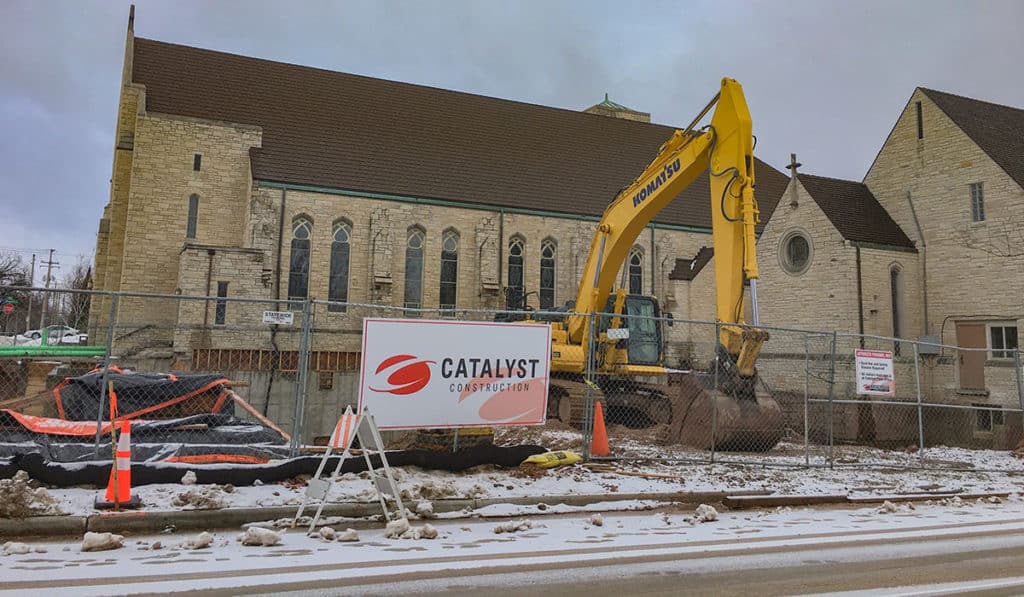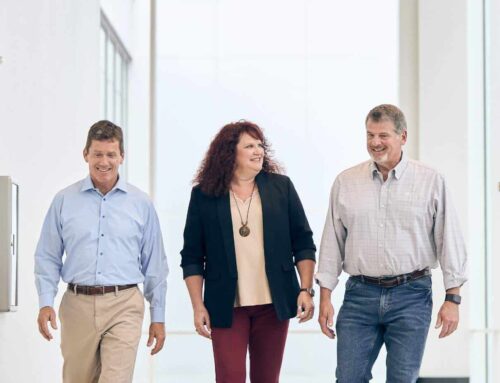While your pastor and ministry leadership team may take the lead in your church building project or renovation endeavor, it shouldn’t be left solely to them to communicate with all the parties involved. The building committee is critical to ensuring the building of your new facility runs much more smoothly.
Building committees have many responsibilities and duties, but their importance lies in these three critical aspects of construction projects:
- Identifying your needs: Effective building committees evaluate the needs for new construction, renovation, or remodeling projects and how these align with the church’s vision and mission.
- Planning to address these needs: Once the needs are identified, this committee focuses on planning everything that needs to be agreed upon before the project begins. They’ll interview contractors, architects, building managers, and other key parties. They’ll also report to the congregation and establish clear communication channels to ensure everything runs smoothly.
- Overseeing project completion: Most building project details fall on the building committee. The main part of committee members is keeping everyone informed of progress and setbacks and monitoring the project to ensure it stays within what’s been agreed upon by all the parties involved. Should anything jeopardize the project, it’s the committee’s job to oversee the consequences and refer to the other committees for the next steps.
At Catalyst Construction, we’ve seen firsthand how organizing as few committees as possible is critical to a successful project. Clients often come to us with too many committees that slow down the process. We analyze the planning and project phases to designate committees based on efficiency, not confusion.
We believe in streamlining committee members to create the least confusion and ensure we’re developing efficient voting processes that help the project move faster.
How to Select a Church Building Committee
Given the importance of a church building committee at Catalyst Construction, we suggest our clients take the committee-selection process very seriously. While each project needs different committees and leaders, we always recommend you focus on these parameters to choose the members:
- Pick a leader for each group they represent: Committee leaders don’t need to be experts in the subject. Ideally, they’re individuals who can communicate well, listen thoughtfully, and clearly deliver information.
- Give each committee defined objectives: Each committee and each member should understand their objectives. This might change depending on the committee structure your project needs and the various roles assigned. Nonetheless, before anyone agrees to their role in the committee, ensure they fully understand what’s expected of them.
- Diversify your members: Select people of diverse experiences and ages. This helps ensure your committee has a different perspective that can come in helpful when making decisions. Avoid filling out committees with members from only one demographic or background. Younger members will have a different perspective that can be essential for church growth.
- Select people with a collaborative spirit: Committee members need to be deeply committed to the congregation and the project. You’ll want to select members who feel genuinely connected to the cause and recognize the honor and responsibility of being a committee member.
- Ensure links to the church leadership: Don’t forget to establish a clear path to the administration. Committees need to directly connect to the church leadership team to develop clear goals, communication strategies, and processes.
What Different Construction Committees You Might See in a Church Building Project?
A church building committee, also known as a steering committee, oversees different areas of a building project. Most committees include a chairperson, secretary, and design subcommittee that share other responsibilities.
The goal of committees is to serve as the oversight and management of the church building project as defined by the ministry and leadership of the church.
Expert tip: Committees vary in size and numbers depending on our congregation and the size of your project. If you have questions about your specific project, please contact us so we can advise you on how to structure the best committees for your congregation.
Site Planning Committee – The Master Plan Team
Also known as the master plan committee, this group looks at the church as a whole. Master planning involves creating a comprehensive strategy for the facilities. The site planning committee comprises outsourced talent, including engineers, architects, builders, and other companies.
While this is not always part of the building process, it’s important for new construction or renovation projects that involve multiple church buildings or phases.
Common responsibilities and duties of the site planning committee:
- Review the condition, strengths, and weaknesses of current facilities and how they relate to the ministry
- Review of all current and future parking requirements
- Review of all current and future recreational needs
- Comprehensive analysis of the site location and the surrounding community activities
- Review present and future regulatory planning and concerns
Expert tip: Ideally, your site planning committee eventually becomes your building committee. This way, initial decisions made by the planning committee won’t be overruled by a new group of people in the next phase of your project.
Building Committee – The Decision-Making Committee
Here’s where decisions are made. Ideally, you want to pick three to five people to be part of this committee. Those on this committee need strong leadership skills to make final decisions on essential points.
Common responsibilities and duties of the building committee:
- Schedule and preside over all building committee meetings
- Create an agenda for each meeting with the board, architect, contractors, and so forth
- Guide and direct each member of the committee in the gathering of information to fulfill the committee’s purpose
- Review and sign on behalf of the church all required contracts
- Represent the church along with the church consultants before all governing bodies
- Responsible for the organization and structure of all reporting procedures
Subcommittees – Optional Committees
Most of the time, these are short-term committees that provide technical support during the planning process. They’re responsible for research and helping the building committee discover the project’s best solutions. Subcommittees are best led by leaders, who are more likely to guide the committee to make decisions. Spend time finding the right person to lead these subcommittees.
Here’s a list of subcommittees you might see:
- Technical Committee
- First impressions committee
- Auditorium committee
- Sound & AV committee
- Systems committee
- Ministry committee
- Educational committee
- Fellowship committee
- Multipurpose space committee
- Design committee
- Communications team committee
Start Planning Your Church Building Project
Catalyst Construction specializes in church building projects. We help our clients streamline their current committee status to ensure they have an effective structure to guarantee the project’s success.
We gauge the current decision-making process, perform leadership analysis, and prepare coaching strategies on timelines and next steps to help your congregation have the right structure to take on its next building project.
Before starting a project, we also perform a SWOT analysis to examine members’ strengths and weaknesses. This is completed ahead of time to guarantee a practical church construction project.
For more information on forming your construction committees or how to plan a successful church building project, reach out to Catalyst Construction today.






